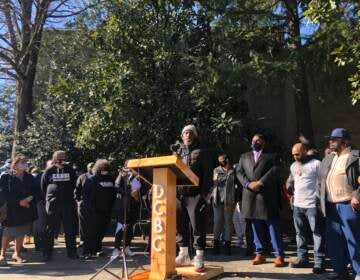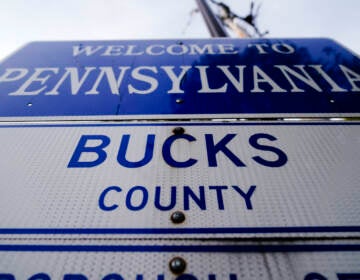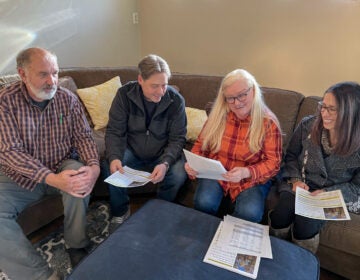A small farm is battling with Upper Makefield Township to stay in business
Is it agriculture or entertainment? Is it too small, or not commercial enough? These are among the issues one couple say they face, with no resolution.
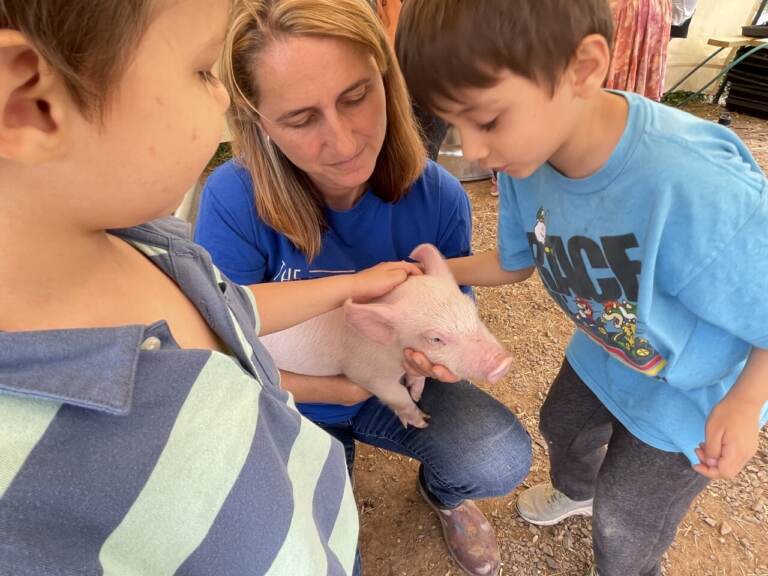
Rosie Alfaro and her two sons, Marcus and Mason at their farm in Bucks County. (Courtesy of Earth's Best Organics)
What’s important for us to know about Philly’s suburbs?
A small working farm that is open to the public is tied up in a legal battle with Upper Makefield Township to stay in operation.
For nearly nine months, the owners of Earth’s Best Organics farm, Rosie and Alberto Alfaro, have gone back and forth with officials of the Bucks County municipality, mostly over zoning ordinances. The township says that neighbors are complaining about the farm, and that the Alfaros lack the required zoning permits. But the Alfaros say the township has been “uncooperative” in the process of obtaining said permits.
The township has lodged eight zoning violations against the farm, including “failure to request a required zoning permit for farming use,” “having an unsafe egress and ingress to the property,” “not having the minimum acreage required for [farming],” and “limitations on the number of grazing and non-grazing animals.”
The Alfaros appealed those citations to the town’s Zoning Hearing Board on Feb. 8, and were unanimously denied. Now, they have filed an appeal with the state Office of the Attorney General.
The primary argument the Alfaros and their lawyers make is that some of Upper Makefield’s ordinances are superseded by state law.
For instance, the township says that for a farm to be considered a farm, it must be at least 100 acres. But according to Pennsylvania’s Right to Farm Act, a farm can either be 10 acres or generate $10,000 annually, as long as it has a nutrient management plan approved by the state. The Alfaros’ farm is smaller than 10 acres, but they earn about $100,000 a year and have an approved nutrient management plan, as well as approval from the state Department of Agriculture and the Department of Environmental Protection, according to Rosie Alfaro.
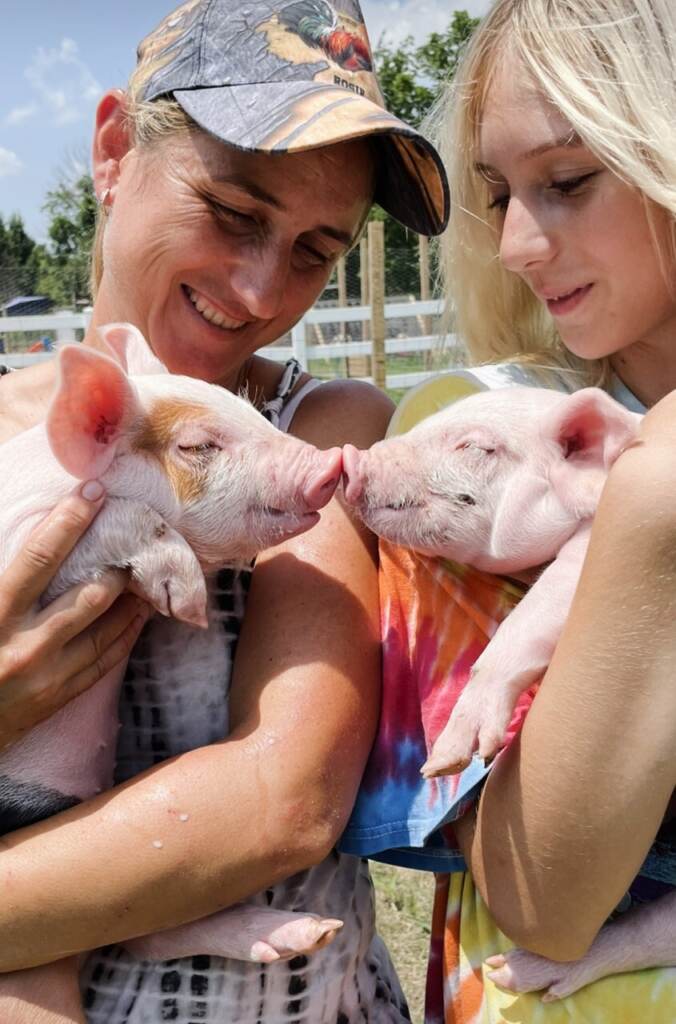
Township Manager David Nyman denies that Upper Makefield’s enforcement of the Newtown Area Joint Municipal Zoning Ordinance violates any state laws.
The Alfaros moved to Upper Makefield to provide a better education for their children in the Council Rock School District. Their concrete business fell through during the pandemic. But then, they said, they recognized a need in their community.
“Most of the people in our area, they never have seen a carrot in the ground,” said Alberto Alfaro. They created Earth’s Best Organics to provide healthy, fresh food to their children, but also to teach other families how to farm.
The Alfaros were raised by generations of farmers. In Argentina, Alberto Alfaro’s grandparents had geese, ducks, chickens, and fruit trees. His father had been a potato picker in northern Italy, and when he moved to Argentina, grew fruit trees and vegetables. Rosie Alfaro’s parents and grandparents on both sides in Bulgaria all had small farms, with fruits, vegetables, and animals.
At their Upper Makefield farm, the Alfaros teach children about incubating eggs and how bees produce honey, and they allow visitors to feed chickens, sheep, pigs, and goats. The farm’s popularity has surged in just two years in existence, with over 20,000 likes on Facebook.
“People can see and experiment and touch. We share a lot,” said Alberto Alfaro. “We teach them love through the animals, love to their family, we teach them boundaries, the importance of respecting animals, we teach them sharing … They left with knowledge.”
Because of this interactive aspect, according to Rosie Alfaro, the township has also said it can’t give them farming permits because the “farm is not used as a farm, but as entertainment.”
“That’s our main disagreement,” she said. The farm’s main income generator is the sale of eggs, honey, chickens, and other animal products. All the animals on the farm are there for a purpose.
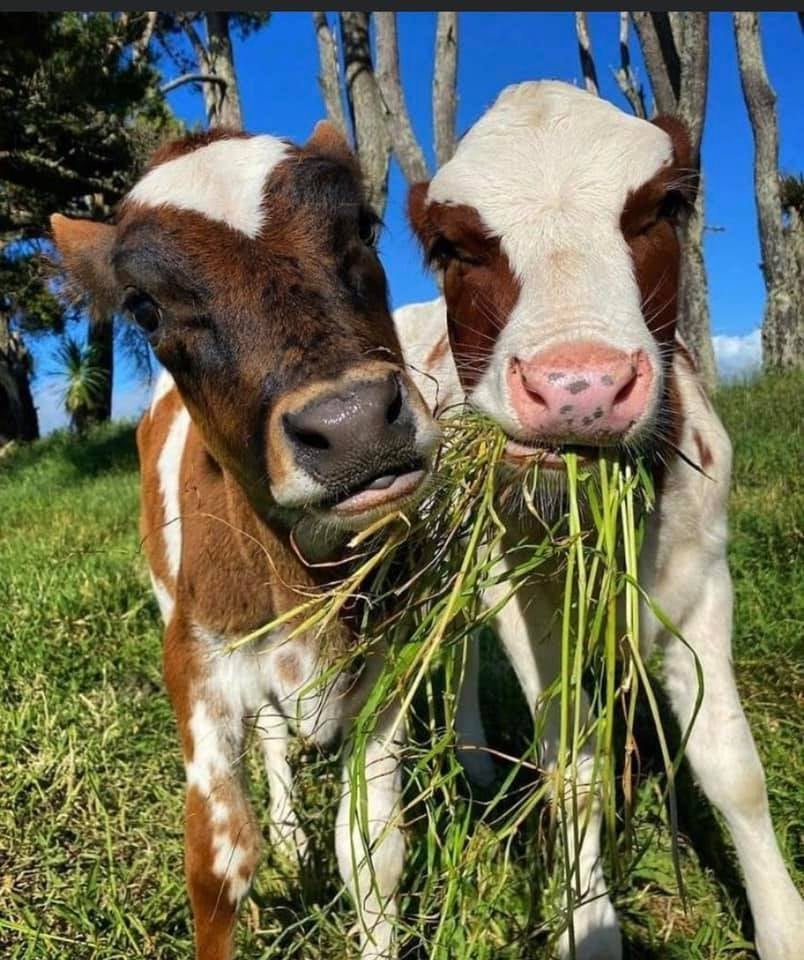
Rosie Alfaro said the township also takes issue with the fact that they sell their products solely on the farm, not in local stores.
“According to [the township solicitor], only people that are selling to supermarkets are farmers,” she said.
Because their farm isn’t considered a farm by the township’s standards, the family struggles to file for the right permits, which is one of the zoning violations the township cited. Rosie Alfaro said that creates a cycle of exhaustion.
“We have a farm stand, so they said we need a permit for a farm stand,” she said. “We filed a permit for a farm stand. They denied the permit because they said that there is no farm. They basically keep denying the farm’s existence. So that precludes them from providing any other permits that we’re supposed to be having. And they are saying that we can’t have a farm without a permit, but we can’t have a permit because ‘there is no farm.’”
The couple have now run up $30,000 in attorney’s fees. The Alfaros filed their appeal to the Office of the Attorney General partly because they can’t financially sustain the drawn-out battle with the township.
Susan Bucknum, an agriculture lawyer representing the Alfaros, said the township is attempting to preclude the farm from engaging in direct commercial sales, which is protected by the Right to Farm Act.
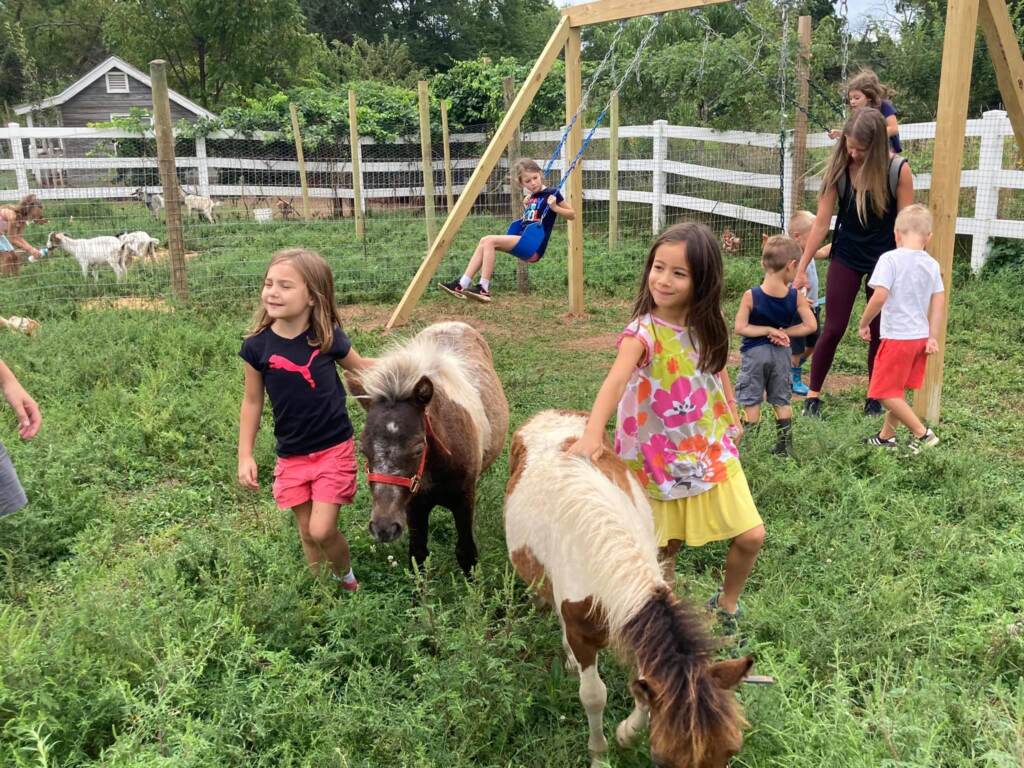
The township says the farm violates township ordinances by operating a commercial business on a “residential property.”
According to Bucknum, Upper Makefield is going beyond its authority.
The township also filed an ordinance that attempts to limit the number of animals on a single farm. That ordinance, said Bucknum, “conflicts with how state law determines animal density on operations.”
Bucknum believes the Alfaros have a strong case against the township, and is optimistic that the attorney general will decide to review the township’s statutes.
“The Alfaros have been all along attempting to cooperate with the township and get whatever approvals that they’re saying they need,” said Bucknum. “And they keep being met with no real explanations and refusal to issue permits.”
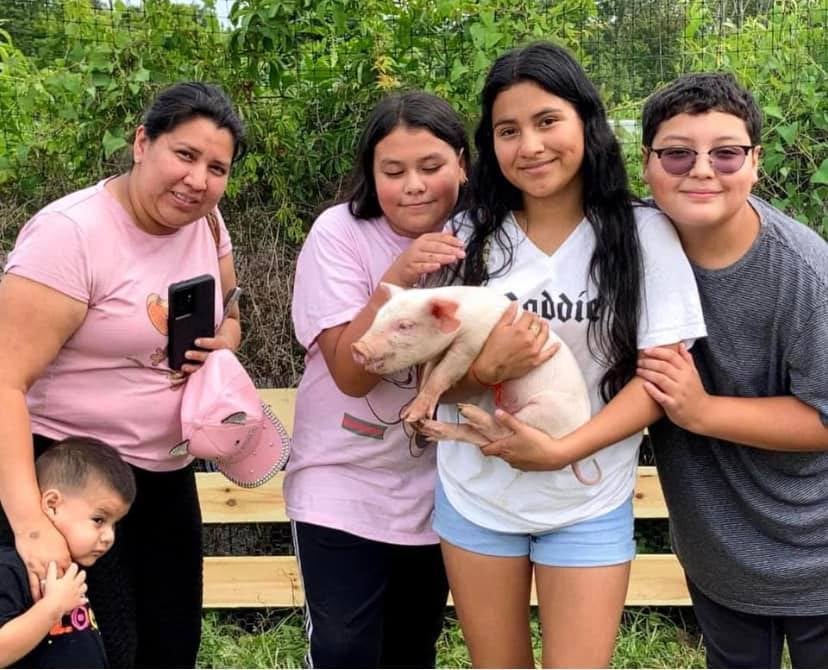
Neighbors’ complaints
Over the last 10 years, Upper Makefield’s population has grown in size and wealth. According to U.S. Census figures, 8,190 people lived in the township in 2010; in 2020, that number was 8,857. The census reports that the median household income in 2000 was $102,759, and that from 2015 to 2019, it was $157,000. In 2018, The Philadelphia Inquirer reported the mean household income as $306,081. A 2018 analysis by Philadelphia Magazine revealed the average home sale price was $940,886, making it the second most expensive Philly suburb in which to buy a home.
Underlying their issues with Upper Makefield officials, the Alfaros and Bucknum said, are complaints the township has received from neighbors, especially a landlord who is fixing his house next door in preparation to sell. Rosie Alfaro said the landlord is concerned the farm is lowering the value of his property.
The township said it has “received a myriad of complaints/inquiries into what is going on at their property,” including complaints about “more than 200 cars visiting the property on some weekends, most of them parking illegally and creating hazardous traffic conditions on Eagle Road.”
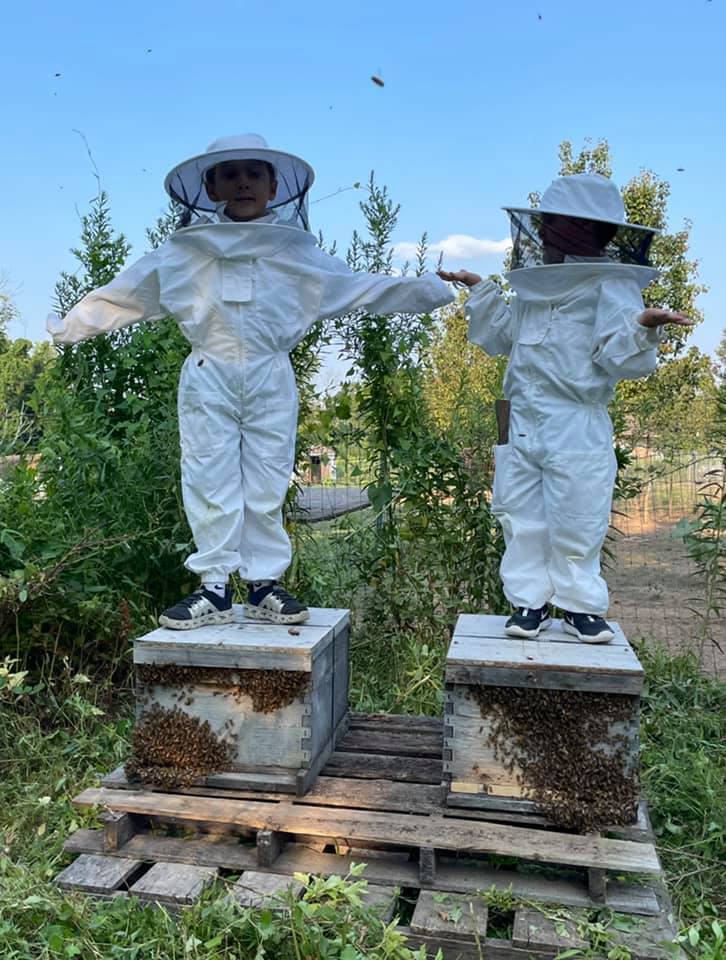
According to Rosie Alfaro, on an average winter weekday, the farm sees around 15 to 20 visitors, and on weekends from 50 to 100. In the summer, those numbers rise to 150 to 200 people on a typical weekend day.
But the Alfaros say they have responded to the township’s cited parking violations. The Alfaros removed trees to create space for at least 50 more cars, up to 100 parking spots, which cost them about $6,000.
They also built a new fence, as requested by the township, costing about $20,000.
In a response to questions from WHYY News, the township mentioned that the family’s broken septic system is a violation. Yet Rosie Alfaro said that the family has already made the necessary repairs, and that they were later approved by the Bucks County Health Department. A new septic system is approved to be installed in the spring, which will cost at least $40,000.
The Alfaros say the township has an “ongoing” list of complaints.
“They keep adding and adding and adding,” said Alberto Alfaro, “and we keep meeting all the demands and doing what they ask us to do… They’re trying to make us spend money so we drain our pockets and we’re going to say, ‘Gee, now we don’t have more money to pay for the lawyer, we cannot continue this nonsense,’ and quit. But we’re not going to quit.”
The couple are optimistic that they will win against the township.
“I’m not discouraged,” said Alberto Alfaro. “It’s a good struggle because it makes us stronger. It makes you tougher. And I teach to my kids, nothing comes easy in life.”
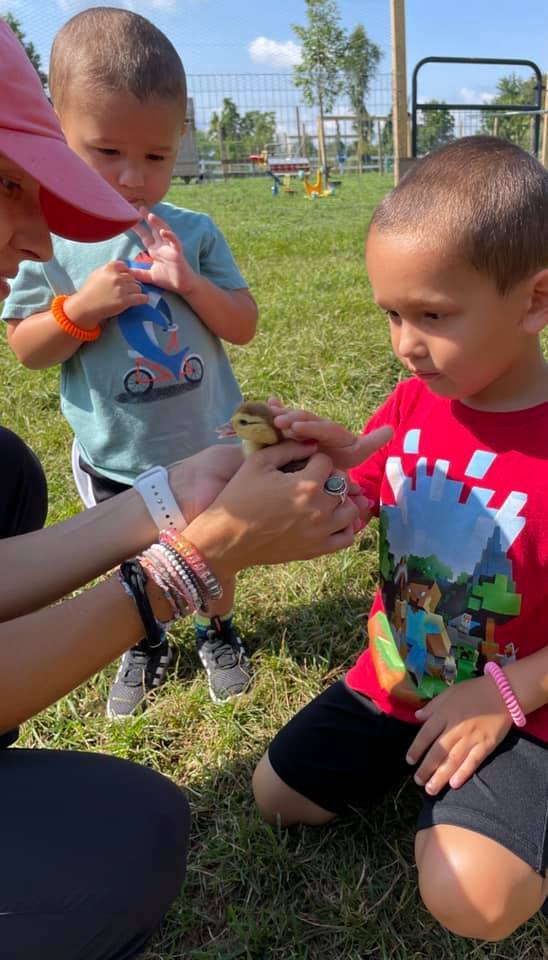
Bucknum said the township needs to better respect the farm’s agritourism business. “Farmers need to bring people to the property, they have to have a draw,” she said, and agritourism helps many farmers stay alive.
Last July, Gov. Tom Wolf signed into law better protections for farmers who open their land to the public for education or commercial purposes. The new law extends liability protections to farm markets, pick-your-own produce fields, corn mazes, petting zoos, hayrides and farm tours, and other activities that hundreds of farms are turning to to promote their businesses and augment their income.
It’s just about whether townships are going to recognize farmers who engage in these activities, “to stay viable, to bring in supplemental income, to keep going,” Bucknum said.
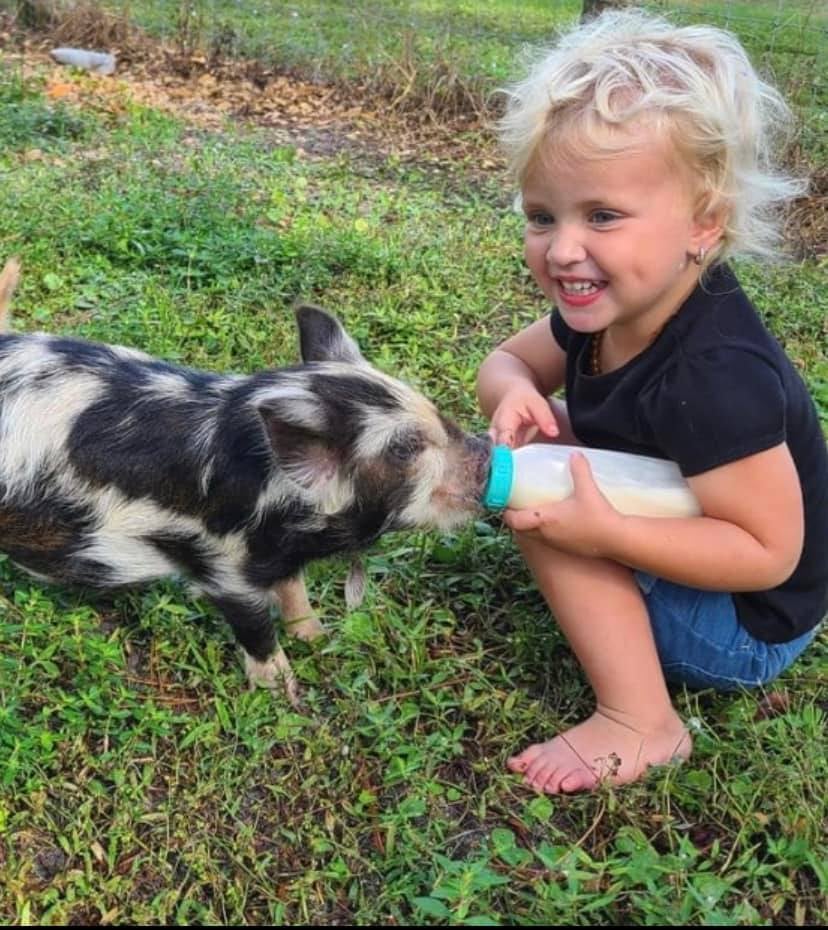

Get daily updates from WHYY News!
WHYY is your source for fact-based, in-depth journalism and information. As a nonprofit organization, we rely on financial support from readers like you. Please give today.


